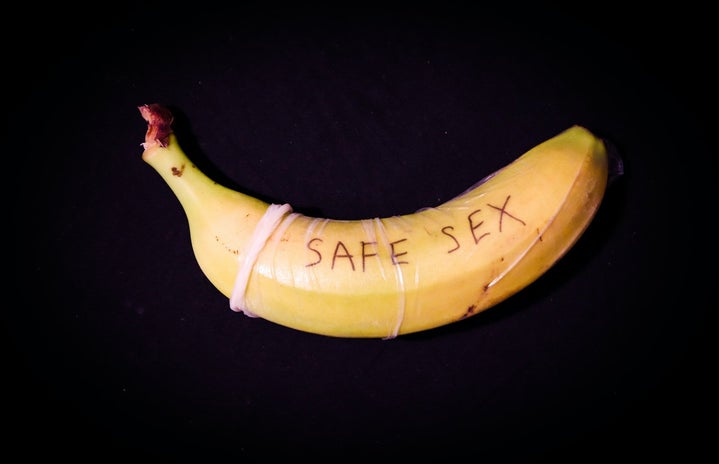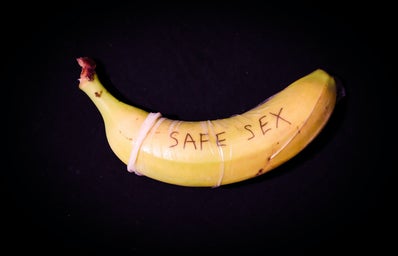Growing up, my mum would answer questions I had about literally anything. When I asked about how I was made she’d explain I came from a seed and an egg, adding more detail as I got older and started to ask more follow up questions. I’d say almost all of my sex education was from my mum or books she gave to me. Now that I’ve got my own opinions, some are different to hers and she’s okay with that. But many people don’t have such a positive experience. Should parents be encouraged to talk about sex with their kids? Or should we leave it to schools?
Compulsory RSE (Relationship and Sex Education) started in 2020, with the government wanting to educate everyone from primary to secondary covering topics like consent, healthy relationships (intimate or friendships) as well as queer sex. After the transphobic comments made by our Prime Minister at the Conservative conference this October, it feels valid to ask what changes will be made to RSE. Will we follow in America’s footsteps and have a ‘Don’t say gay’ policy like Florida? This does not feel like a leap at all when the main worries from parents about the RSE curriculum is about talk of LGBTQ+ issues and whether topics are ‘age appropriate’.
Perhaps now more than ever, what with the rapid and terrifying rise of the far right across the world, it’s important for parents and children to have open conversations about sex. Not always, but a lot of the time parents know us best, so in theory when it comes to sex ed parents should be able to tailor information to their children and their bodies. Kids spend more time at home than at school so, since they have more access to parents than teachers, it should feel easier to ask something to them. The stats show that it’s beneficial: adults who support their children, allowing a partner to stay the night or having these open and nuanced conversations, achieve lower rates of teenage pregnancy, like in the Netherlands where this relationship exists more, they have a teenage pregnancy rate of 1/8 of the USA . Parents for the most part are up for these discussions and supporting their children with 75% of parents with kids aged 5-18 feeling confident in talking about it with them.
Being confident in something doesn’t mean you’re equipped however. 42% of parents don’t feel supported by schools to cover these issues. We must remember that the sex education kids receive nowadays is almost definitely better than the one their parents got so whilst parents might want to help they may have no idea how to. That’s why schools are so vital; they can provide a standardised sex education and resources for teachers so that they’re getting information on queer sex, for example, correct.
Of course it’s easy to say in a survey that you’re confident in talking about sex with your children but I don’t think that many people are- for a lot of people, it is just awkward. When sex education at school fails and parents aren’t there for the conversations, many people turn to porn. Sadly, a huge amount of porn is incredibly violent with 79% of children under 18 reported to have seen this type of porn. It demonstrates acts which, although some people like, the majority would not be into and as well as this, it’s just extremely unrealistic. Porn in this generation is so much easier to access than in our parents’. A parent may hear that laws have been put in place to ensure age validation on sites like Porn Hub however, all that you have to do is click ‘I am over 18’ and then you’re in.
This generation has grown up with technology that our parents have no clue how to work, like on snapchat with the ‘for my eyes only’ feature, so how can we expect them to safeguard us? How can we expect adults who make the RSE curriculum to know and understand how these apps work well enough to prevent abuse or exposure? Parents need resources to understand the technology their kids may be using and teachers need to understand it more.
All these ideas about parents talking to their children are based on the idea that they aren’t going to shame or harm their kids. This just is not reality, 60,000 girls under 15 are estimated to be at risk of FGM (female genital mutilation) in the UK. More common than this are parents with negative opinions on LGBTQ+ issues, contraception, abortion or their children having sex at all. It’s impossible to generalise and trust that all parents talk to their children in a healthy way.
Even if your parents’ views aren’t harmful and they’re happy to talk, overcoming the awkwardness can be hard. Perhaps the only way to get past this is by having open chats and answering questions from the beginning of a child’s curiosity.
It’s obvious that there’s no right answer. If done right, parents talking to their children is an invaluable thing that can open up the space for important conversations, even into adult life. However, schools have such a responsibility to ensure that all children know the facts and can access any service they need to; obviously this job could be made easier by providing parents with resources though. Sex education has a long way to go and there’s also the very real possibility of it getting a lot worse. Really the only thing we can do is make sure that we’re educated so that the next generation comes out better.



